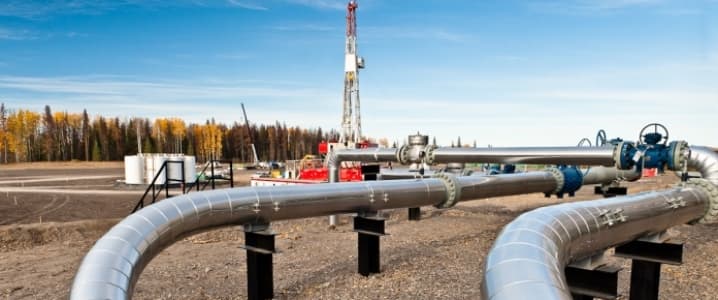The idea to increase the federal gas tax has gained momentum in recent weeks as a possible way of generating new government revenue to put into infrastructure projects. Although such a tax increase is a non-starter for most Republican lawmakers, some are said to be open to considering such a move.
If the U.S. gradually raised the federal gas tax by $0.25 over five years starting in 2018, it could generate hundreds of billions of dollars of government revenue by 2050, clean energy and environmental policy think tank Energy Innovation says.
But apart from the most obvious economic impact of a gas tax increase, such a hike would also profoundly change the U.S. fuel use and the composition of the transportation fleet, research by Energy Innovation showed. A $0.25 gas tax increase could help the U.S. to generate as much as $840 billion in government revenue through 2050, while rising gasoline costs would spur more interest in electric vehicles and add 1.2 million more EVs on American roads, reducing total fuel consumption by more than 1.3 billion barrels by 2050.
Energy Innovation have based their research on last month’s proposal by the U.S. Chamber of Commerce that called for a modest gradual increase in the federal fuel fee, because inflation and vehicle fuel economy have eroded its value since the tax was last raised in 1993.
“Increasing the fee by a total of $.25 cents, indexed for inflation and improving fuel economy, would raise $394 billion over the next 10 years,” president and CEO Tom Donohue said. Related: IEA Warns Of New Oil Glut
According to Energy Innovation’s report, while raising the federal fuel user fee (the gas tax) by $0.25 per gallon would generate $840 billion through 2050, it would also increase the cost of the gas tax to drivers to about $30 billion per year by 2022, with annual costs steadily decreasing over time. The higher gasoline costs would increase consumer interest in EVs, lifting annual EV sales by about 100,000 vehicles, resulting in around 1.2 million additional EVs on the road by 2050, Energy Innovation said.
Higher costs and higher vehicle electrification in turn would also reduce annual U.S. gasoline consumption by between 30 and 35 million barrels, saving more than 1 billion barrels through 2050. Annual diesel consumption would decline by about 10 million barrels, saving about 235 million barrels by 2050, according to Energy Innovation.
Still, the think tank cautioned that raising the gas tax is not a cure-all for raising funds for infrastructure investment.
“Increasing the gas tax by $0.25 would raise hundreds of billions in revenue to invest in U.S. transportation infrastructure. However, this funding source is likely to shrink over time as the fleet becomes electrified, gasoline and diesel vehicles become more efficient, and gasoline and diesel consumption falls,” it says.
An alternative to the gas tax per gallon could be a vehicle-miles-traveled (VMT) tax as it applies regardless of the types of vehicles or vehicle efficiency. That “might be a better option going forward that simply increasing the gas tax”, Energy Innovation said.
Calls for raising the gas tax come not only from the U.S. Chamber of Commerce.
The American Society of Civil Engineers (ASCE) — which gave American infrastructure a D+ on its report card — also promotes a gas tax increase by at least 25 cents per gallon and tied to inflation to restore the purchasing power of the Highway Trust Fund, fill the funding deficit, and ensure reliable funding for the future. Related: Is History Repeating Itself In Oil Markets?
The American Trucking Association (ATA) proposes a 20-cent-per-gallon user fee on all transportation fuels, including diesel, gasoline, and natural gas, to finance A Build America Fund, because the Highway Trust Fund is expected to find itself short of funds as soon as in 2021.
An increase in the tax is far from certain as the funds for infrastructure are up for debate in Congress where most Republicans are expected to oppose a tax hike.
At a press briefing Tuesday, when asked about a possible gas tax increase, Secretary of Transportation Elaine Chao said, “Well, the President has not declared anything out of bounds, so everything is on the table.”
The gas tax is not ideal and has a “very regressive impact” on the most vulnerable, Secretary Chao said, but added that “these are tough decisions, which is why, once again, we need to start the dialogue with the Congress, and so that we can address these issues on this very important point.”
By Tsvetana Paraskova for Oilprice.com
More Top Reads From Oilprice.com:
- Goldman: Investors Grow Wary Of Another Oil Price Rally
- U.S. Mandates Biggest Non-Emergency Strategic Oil Selloff
- Mexico’s Natural Gas Dilemma

















